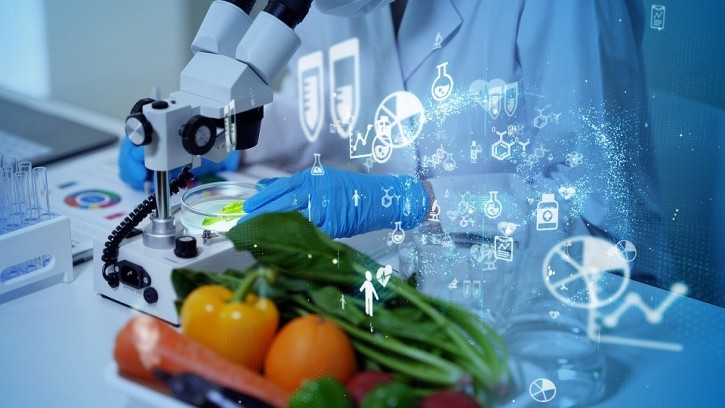AI for enhanced bioavailability: “there’s no other way” says expert

Industry thought leaders at the Future Food Tech event in London last week (Sept 28 – 29) discussed the need to prioritise the optimisation of bioavailability within the product development process to prevent inevitable future nutrient deficiencies due to increasingly adopted plant-based diets.
Consumer knowledge gap
Carole Bingley, technical specialist from the Reading Scientific Services (RSSL), explained that there are new ways to address the concerns for nutrient availability, including fermentation and novel fortification methods for nutrients such as iron from plant sources, which has a low bioavailability.
“Across the food industry, there’s also lots of interest in adding ingredients such as adaptogens and nootropics, as well as vitamins and minerals that consumers are wanting,” she noted.
Yet, she observed a significant ‘knowledge gap’ between what consumers think they need versus what they do need to support their health, spotlighting iodine and fibre as important nutrients due to returning deficiencies.
“The number of people reaching 30g [of fibre] per day is very small, and we all know of the benefits for increasing fibre intakes with regards to the microbiome. This can also have a knock on effect on the absorption and utilisation of nutrients. But it is difficult for consumers to reach the required levels.”
She added that it is additionally hard for companies to develop high fibre foods because this can lead to dry textures due to water and fat absorption.
Nora Khaldi, CEO and founder of the AI-peptide manufacturer Nuritas, added that ‘new generations’ of plant-based ingredients, such as theirs, should aim to improve bioavailability.
“As new generations of plant-based ingredients come out, bioavailability has not been part of the equation and it should be.
“For example, you can absorb 30% of the calcium in dairy, whilst only 5% from spinach which is particularly potent in calcium. So you can’t just assume if a nutrient is high in another source, it will convert in the same way,” she explained.
She used the example of Nuritas’ ‘Peptistrong’ ingredient which has been found to improve cellular uptake of whey protein by four times, compared to the milk protein alone.
Khaldi warned the shift towards plant-based diets will have long-term health consequences that we are not currently aware of, due to nutritional deficiencies.
“There’s also two parts to bioavailability, one which involves how much of the nutrient is getting into your body, but then another which is how much is actually being used by it.”
Role of AI
Ehsan Moaseri, founder and CEO of US-based B2B nanobiotechnology company NULIXIR, emphasised the opportunities for the utilisation of AI to speed up the research into bioavailability optimisation, but stressed the importance of high quality input data to ensure accurate conclusions for product claims.
Khaldi agreed, adding: “In order to bring this technology to the food industry, you have to look at the problem in a completely different way. I’m not sure how this would work in the future, because the current understanding of mixing ingredients and nutritional research isn’t there yet.
“However, from a molecular perspective, that’s where AI kicks in. Understanding the molecules within a material and associating those molecules to a health benefit is what AI can do.”
Yet, she drew attention to the expense and years of research required to reach this level of knowledge and data using AI, explaining that it took seven years of experimenting with peptides on different human cell types to understand the outcomes at Nuritas.
“But this can only be done using AI, there is no other way forward in this space to create new ingredients for food or pharma without it,” she added, highlighting that it would otherwise have taken 30 million years to identify Nuritas peptides according to a company calculation.
Clinical backing
Moaseri stressed the importance of having human RCTs to prove the bioavailability and claims of developed ingredients to prove the effects within the body.
He pointed out the significant gap between these RCTs for the food and pharmaceutical industries resulting from differences in the desired claims.
“In pharma, you have the doctor prescribing the medication. But for food, your point of contact is the consumer and sometimes they think they know what they’re talking about, but often you find that knowledge is very shallow.”
“That’s where I think novel technologies will come to play, to bring that level of calibre that we have in pharmaceuticals. So it’s not just a nice claim to have on your label, but you actually have the data points to back it up in a deeper, meaningful way.”
Khaldi added that wearables and health trackers, such as glucose and sleep monitors, allow consumers to observe health outcomes for themselves.
“The more the consumers feel the effects, the more they will keep using it,” she stressed.












